CO4CITIES Fifth Transnational meeting, Turin, 30 June - 01 July 2022
Edited on
20 July 2022Turin hosted the fifth Transnational Meeting.
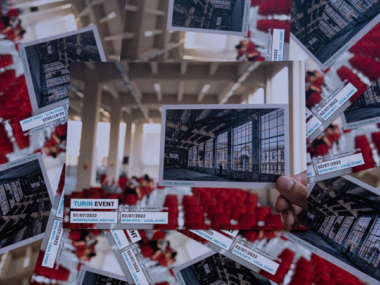
The meeting took place in presence and lasted 3 days, including the optional day dedicated to Open Patti, a local event dedicated to show different collaboration pacts actually present in the City and their resulting activities.
Day one: the 30th of June 2022
The Turin event started in Urban Lab premises. Urban Lab is part of Turin ULG. It is an autonomous association created to explain to a general audience the transformation processes of Turin and the metropolitan area. Urban Lab is a centre for documentation, dissemination and debate on the city, a place for discussion and information available to citizens, public experts and economic operators. It speaks to citizens interested in urban transformations accompanying them to the discovery of the territory of Turin, its architecture, its spaces and their uses. It offers experts and the opportunity to deepen policies, plans and projects of urban transformation looking at local experience and international good practices.
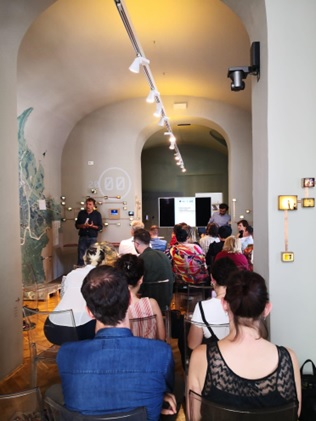
Chiara Lucchini, Urban Lab Regional Development Manager, opened the session providing an overview of the City and the urban transformations that have affected it in the last 30 years. Its intervention was followed by a presentation of the Turin Springboard Plan and related debates between project partners. A draft version of the document was previously uploaded on Basecamp platform. The Springboard Plan consists of several contributions, each one will have specific but interlinked purposes. The goal is to develop a document that combines a theoretical part with an operational one.
The first section explores different experiences. Starting from general contributions focused on the role of local stakeholders in urban regeneration processes, on governance models and civic and social engagement strategies, the Plan deepens specific cases in Turin in terms of governance, sustainability and accessibility.
Sections 2, 3 and 4 focus on two key topics explored by the ULG during the project: the guidelines for establishing a commons foundation and those for setting up new Neighbourhood Houses in Turin. The Springboard Plan looks to the future through policy analysis and their possible funding. The Plan will become a useful guide to the public administration, with a focus on the decision-making phases. Christian Iaione, CO4CITIES expert, moderated the whole morning session. Levente Poliak, the CO4CITIES lead expert, could not participate in the entire event, for health reasons.
The afternoon session was entirely dedicated to site visits to Neighbourhood Houses with the following program:
15.30 - 16.30: Bagni pubblici Via Agliè
16.30 - 17.30: Casa del Quartiere San Salvario
17.30 - 18.30: Casa nel Parco + WOW
18.30 - 19.30: BeeOzanam
The tour included the visit of houses located in different districts of the city in order to provide a complete idea of the whole urban environment in which the Municipality is operating: Bagni Pubblici di via Aglié (Barriera di Milano, northern part of the City), Casa del Quartiere di San Salvario (San Salvario, City Center), Casa nel Parco (Mirafiori, southern part of the City), BeeOzanam (Madonna di Campagna, north/west part of the City). Partners were able to see the spaces, interact with the managers and deepen with them the governance aspects and the process that led to their creation and management.
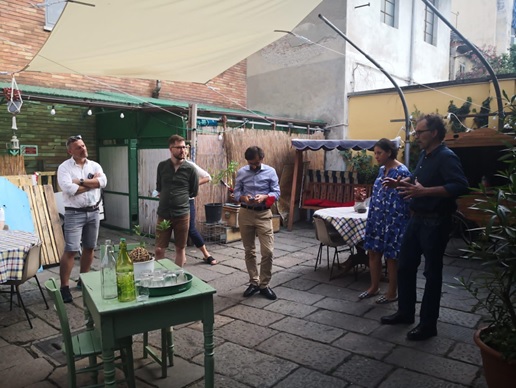 Figure 2_ Bagni Pubblici, via Aglié
Figure 2_ Bagni Pubblici, via Aglié
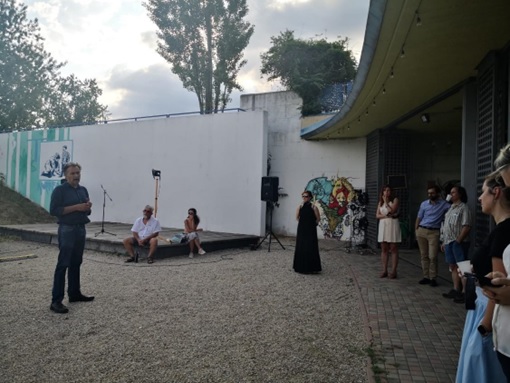 Figure 3_ Casa nel Parco
Figure 3_ Casa nel Parco
Day one: the 1st of July 2022
The second day was organised as an international frontal meeting within the spaces of Via Cumiana 15. CUMIANA15 was born thanks to a Pact of Collaboration between the City of Turin and the civic subjects for the regeneration, care and management of a common good.
After decades of abandonment, the Lancia factory welcomes the new multifunctional space CUMIANA15. A covered square open to all in which socio-cultural, entertainment and recreational activities are carried out.
The day was divided into two sessions:
● the morning session during which the Urbact network, the role of Urbact in Italy and the Urbact projects carried out by the city of Turin were presented. Half of the morning session was devoted to the presentation and discussion of the investment plans by CO4CITIES’ project partners. The session was moderated by Giovanni Ferrero, CO4CITIES Project Coordinator, and by the ad hoc experts Christian Iaione and Daniela Patti.The morning session was streamed and is available here.
● the afternoon session was opened by Jacopo Rosatelli, the City Deputy Mayor, and was focused on local case studies, part of the Springboard Plan, such as: Beeozanam Community Hub and the Urban Common Foundation. Christian Iaione moderated the session with a particular focus on Urban Commons Project Finance.
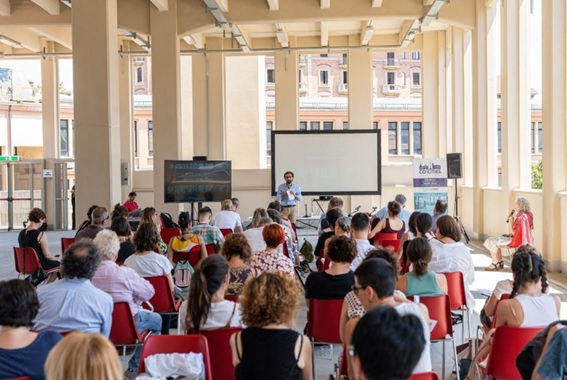
The afternoon session ended with the wrap up and conclusion of Sandra Aloia, manager of Fondazione Compagnia di Sanpaolo, one of the main stakeholders of the territory.
The Compagnia di San Paolo Foundation was founded with philanthropic aims, to promote cultural, civil and economic development. The Foundation acts to pursue three objectives: Culture, People and Planet.
In her conclusion, Sandra Aloia stressed some useful recommendations in terms of management of shared spaces:
● always have clearly in mind the type of service you want to offer and the target you are addressing;
● the need for high skills and high professionalism. It is important to include a varied system of skills in the processes, in order to make them effective;
● the importance of creating/providing a governance that can facilitate the openness of the communities to which we turn;
● the importance to found innovative solutions to a diversified set of problems;
● always have in mind what is the boundary between work and active participation in social, ethical and economic terms.
The wrap up highlights the importance of spaces as physical places of territorial relations and focused on the principles of equity, at the basis of the creation of common spaces and their management. Another important aspect that emerged from the meeting and the presentations is certainly how to construct and insure an efficient governance and how speed and sharing are components that do not always go hand in hand. To find the right balance, therefore, become one of the main objectives for those who deal with the management of Common Goods. This should be translated into a well structured and shared governance able to guarantee the sustainability of the actions.
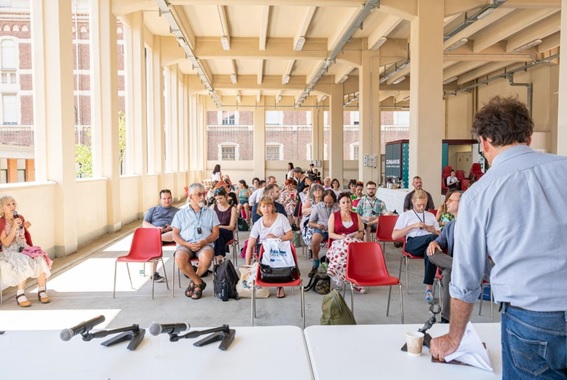
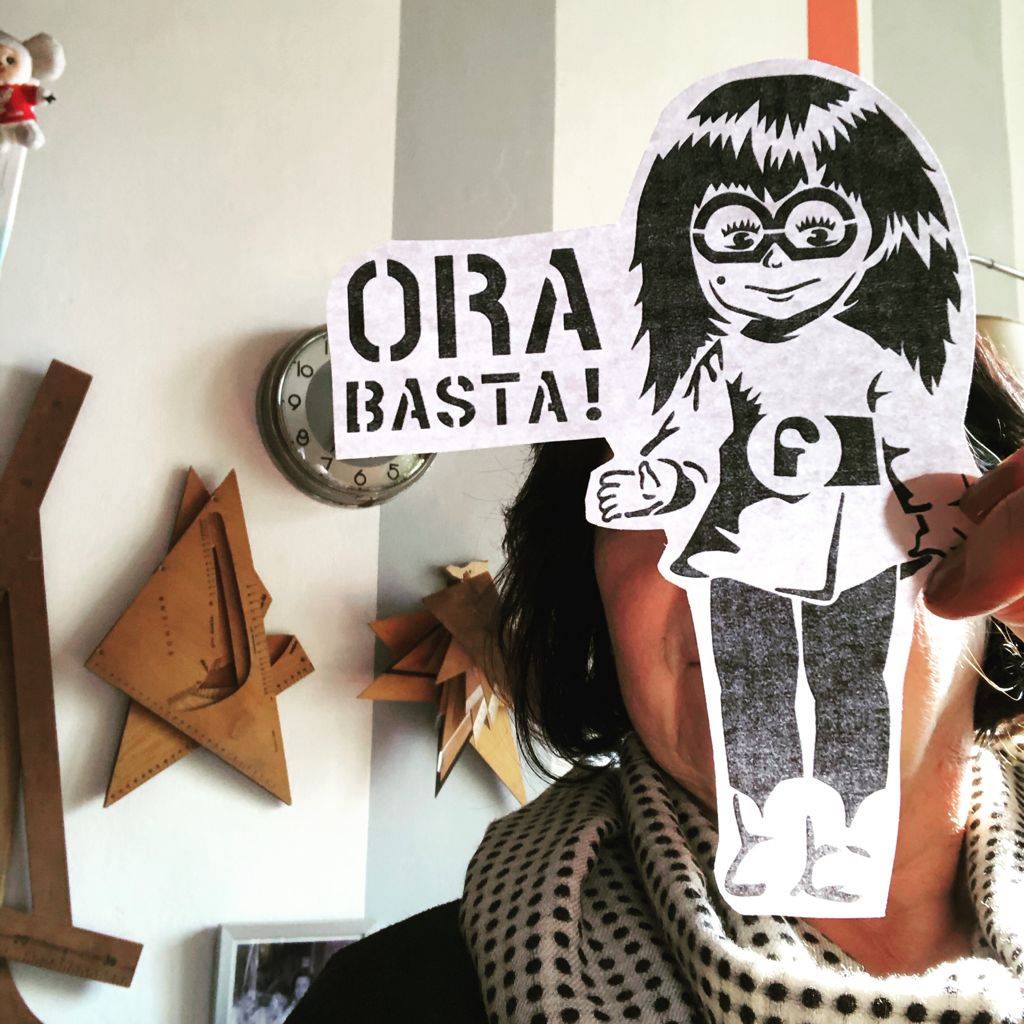 Submitted by Laura Socci on
Submitted by Laura Socci on
